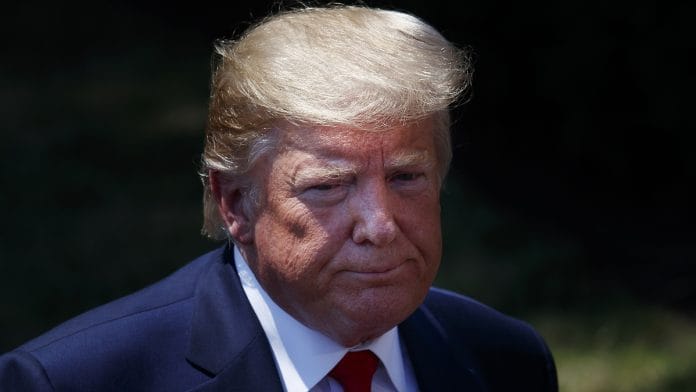President Donald Trump’s decision to move American troops out of Syria to make way for a Turkish attack on pro-U.S. Kurdish forces cements America’s growing reputation in the Middle East for being unreliable, unpredictable and, increasingly, even weak.
Unreliability was the first thing noticed — by America’s biggest critics, such as Iran; its main competitors, including Russia; and even its allies, including Israel and Saudi Arabia. The impression began to form during President Barack Obama’s first term, when Washington, after a period of dithering, abandoned Egypt’s President Hosni Mubarak, allowing his ouster after huge street protests. Was this America’s way of showing solidarity with friends?
Such questions grew into serious doubts when Obama, with five other international powers, signed a nuclear agreement with Iran. Israel expressed alarm, and more quietly so did Gulf Arab countries. All feared it might even be the start of a broader U.S.-Iranian rapprochement that would replace their longstanding U.S. partnerships.
It didn’t help when Obama called Gulf Arab countries “free riders,” and suggested they “share” the Middle East with Iran. To Saudis, especially, who had sided with the U.S. for decades, that felt like a betrayal.
After the 2016 U.S. election, America’s Middle Eastern partners hoped President Donald Trump would improve matters. Instead, he kept up the unreliability, and added a heavy measure of unpredictability.
Trump famously finds it advantageous to keep friends and foes alike off balance. Such unpredictability may be useful in the real estate business. It may also work in international relations for small, disruptive states like Iran and North Korea that rely on chaos and destabilization to further their agendas. But for a global power looking to preserve stability in a volatile region like the Persian Gulf, unpredictability is self-defeating.
Even the Israelis, who benefited from Trump’s unpredictability when he recognized their annexations of Jerusalem and the Golan Heights, have been unnerved by his sudden reversals on North Korea and other global challenges. As they watch him abandon the Syrian Kurds to Turkey, some are wondering if they might be next.
Saudi Arabia and other Gulf Arab countries have concluded that Trump sees them mainly as arms purchasers. So they have little difficulty imagining him making friends with Iranian leaders, and reaching for photo-ops and small diplomatic victories largely at their expense.
Also read: Will wipe out Turkey’s economy, Trump warns as Ankara launches offensive in North Syria
Added to all this is the growing perception in the Middle East that the U.S. is losing, or has lost, the will to fight. While no one doubts America’s military and economic power, it has also, in the aftermath of disastrous campaigns in Iraq and Afghanistan, demonstrated serious conflict fatigue. That became evident when President Obama declined to enforce his own “red line” against the use of chemical weapons in Syria. And it appeared twice more recently when Trump essentially ignored Iran’s downing of an American drone and audacious attacks on Saudi oil facilities.
But no action, or non-action, has been as stark as this week’s abandonment of the Kurds, who have been the key allies in the American battle against Islamic State terrorists. Now it appears to friend and foe alike that the U.S. has fundamentally lost its nerve in the Middle East. It will fight only in self-defense, and only as a last resort.
All this calls to mind the 1956 Suez fiasco, which resulted in a collapse of British and French authority in the Middle East that presaged a broader loss of global clout for those declining European powers. At the time, they were being superseded by the rise of American and Soviet dominance.
The U.S., in contrast, has undermined its own authority with no help from any other country or competitor. This only reinforces its image as a global power that, especially in the Middle East, is growing ever more unreliable, unpredictable and weak. – Bloomberg
Also read: India ‘deeply concerned’ by Turkey’s actions, asks it to show restraint in Syria






